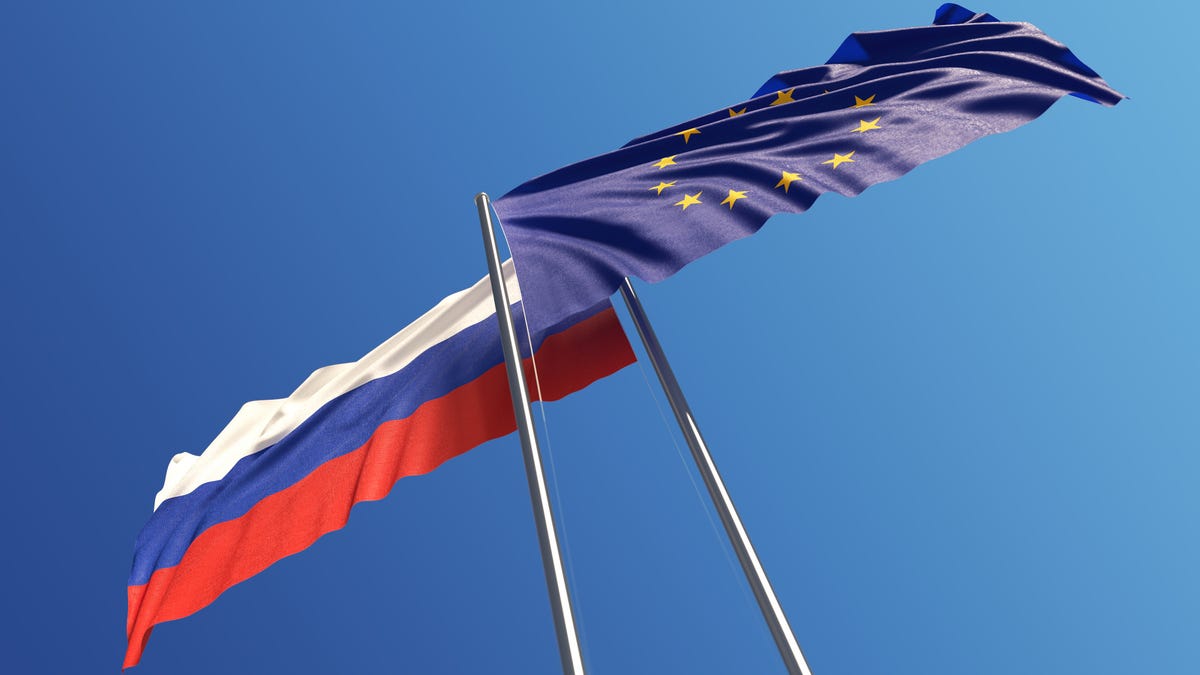Russian News Outlets RT and Sputnik Are Now Banned in Europe
"We will not let Kremlin apologists pour their toxic lies justifying Putin's war or sow the seeds of division in our Union," says European Commission President Ursula von der Leyen.

The EU's ban on RT and Sputnik came into force on Wednesday.
Over the past week as Russia's invasion of Ukraine has continued to cause death and destruction, governments around the world have introduced increasingly severe sanctions on Russia and its entities. On Wednesday, the EU imposed a ban on news outlets Russia Today and Sputnik from broadcasting and publishing within Europe.
The ban means that any outlets in Europe continuing to publish content from the Russian state-controlled media will be subject to fines. It follows decisions earlier in the week by Facebook and YouTube to restrict access to RT and Sputnik in Europe, as well as Apple's and Google's decisions to remove the publications' apps from their respective app stores.
Banning media outlets is never a decision that can be taken lightly, as media freedom is protected as a fundamental right enshrined in the Universal Declaration of Human Rights and under Article 10 of the European Convention on Human Rights. But EU lawmakers said they must balance this right with the necessity to protect people from disinformation.
"In this time of war, words matter," said European Commission President Ursula von der Leyen in a statement. "We are witnessing massive propaganda and disinformation over this outrageous attack on a free and independent country. We will not let Kremlin apologists pour their toxic lies justifying Putin's war or sow the seeds of division in our Union."
EU member states have targeted RT and Sputnik for sanctions due to role they've played in bringing forward and supporting the military aggression against Ukraine, and for the destabilization of its neighboring countries, according to a European Council press release.
"Systematic information manipulation and disinformation by the Kremlin is applied as an operational tool in its assault on Ukraine. It is also a significant and direct threat to the Union's public order and security," said Josep Borrell, the EU's high representative for foreign affairs and security policy, in a statement. "Today, we are taking an important step against Putin's manipulation operation and turning off the tap for Russian state-controlled media in the EU."
The ban complements the EU's package of sanctions, which also include banning Russia from EU airspace, banning transactions with the Russian Central Bank and banning certain Russian banks from accessing SWIFT, a critical tool for international banking. The sanctions will remain in place until all Russian aggression towards Ukraine ceases, the EU said.
On Tuesday, as criticism mounted regarding disinformation on RT and Sputnik, both organizations pushed back. In a statement, Sputnik's press arm characterized actions by governments and social media platforms as an "information war against the Russian media."
In a statement sent to CNET on Wednesday, RT condemned the EU's action. Representatives for Sputnik did not respond to a request for comment.

